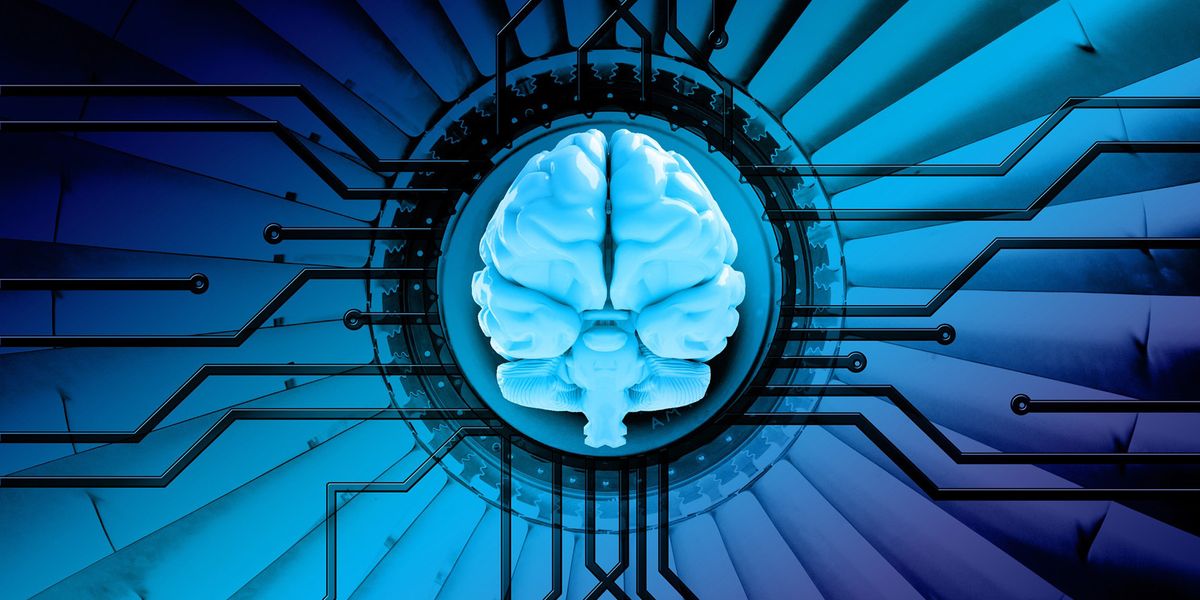Slavoj Žižek’s latest book, Hegel in a Wired Brain, mixes perspicacity and paradox in brain-teasing ways that have become his signature style but there is novelty too in this punchy addition to his oeuvre. Dialectics between past and present are the dynamic characteristically powering his writing but this time the subject matter is the future: the prospect of digitally linking the human brain with a machine, a direct neural connection, heralding an era in our evolution that could be called, without hyperbole, the post-human.
We’re not talking here about the smart human, able to turn on a home’s air conditioning by thinking about it, but the possibility of a digital sharing of thoughts and experiences between people via machines. This is Singularity and if you believe what people like inventor and futurist
Ray Kurzweil is saying, it goes beyond the stuff of weird sci-fi: it’s feasible and imminent.
What Marx said about the commodity – ‘full of metaphysical subtlety and theological perversities’ – also applies to Singularity. It provokes questions about what it means to be human and whether it holds out the promise of a collective space, prelapsarian in nature, that we all can share.
Žižek does not buy into this and to illustrate his reluctance returns to he
Wachowski Brothers The Matrix and repeats what he said about the film in his 2006 book The Parallax View. Neo’s (Keanu Reeves) success in bringing about a systems failure in The Matrix is not quite the liberation of humankind it might seem. The enlightenment he effects will allow people to transcend physical laws and fly like ballet dancers through the air but they remain inside the virtual reality of the Matrix. The ‘desert of the real’ that he can offer a welcome to is the digital universe that sustains the slave-like world of the Matrix; outside are the ruined remains of a destroyed Chicago that Laurence Fishburne’s Morpheus offers a glimpse of.
The point is that there is no automatic escape from a symbolic order governing our sense of identity – the matrix that is Lacan’s ‘Big Other’ – and it is an illusion to think of Singularity as redeeming us from the Fall. In Žižek’s ‘Christian atheism’, the Fall designates the presumption that humans are constitutively divided from other life forms that cannot comprehend finitude. Our comprehension creates the yearning for some organic wholeness and substantial unity, a state of happiness that is the very dimension from which traditional theology says we have fallen. Our sense of loss creates a paradisal point of origin that was never there, and Žižek looks to Hegel for a way of recognizing the illusion of ontological completeness and living with the fractured contingency this entails.
Hegel in a Wired Brain is not denying Singularity but seeks to rescue it from simplification through applied philosophy. He wants to know how direct neural links will handle the Unconscious, a mode of subjectivity that also retroactively creates a point of origin (the unconscious as a psychic area of the mind). But this only happens after its effects in human behavior. By way of understanding such a paradox, he reads Rupert Wyatt’s undervalued film Captive State (2019) as an example of how its familiar fiction – aliens conquering earth – can become a virtual point of reference for our lived experience, more “real” than our real plight at the mercy of corporate rule.
A central tenet running through the seven chapters of this book is the void that defines the human subject and its consequences for Singularity. The fundamental failure at the heart of our being as sexual, mortal creatures – dividing us from ourselves as well as other animals – is the obstacle to notions of a spiritual order that the failure gives rise to. The libidinal energy and disquiet that feeds the Matrix, jouissance, has a parallel in capitalism’s success and Singularity will be no different unless self-alienation is acknowledged; a new kind of Fall from the Fall is necessary.
It’s tempting to read Žižek too quickly, approaching him as a hip iconoclast whose ideas can be readily digested. There’s relish to be had in an intellectual cocktail that mixes a wealth of cultural knowledge, academic rigor, and risqué jokes – but only before getting bogged down in abstruseness and stepping aside from the need to grapple with some complex ideas that he initially seems to make easy to comprehend. Byron’s description of Coleridge – ‘Explaining metaphysics to the nation– / I wish he would explain his Explanation’ in his poem, Don Juan: Dedication – has become a response shared by many after dipping into his books. Such moments are not altogether missing from Hegel in a Wired Brain but the book rarely departs for too long from its focus on the difficulties and opportunities that will emerge as forms of Singularity become a part of our world.


